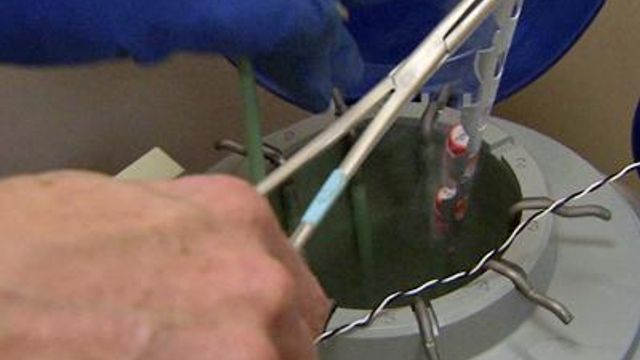Couples face few options with unused frozen embryos
There are about 400,000 stored embryos across the country and their future is in frozen limbo. They are the extra embryos of fertility treatments for couples wanting a baby.
Posted — UpdatedFive years ago, Jacqueline and Randy Betancourt turned to in vitro fertilization to help them start a family. The IVF treatments also led to extra embryos that went into cold storage for possible future use.
Once they had two sons, the Betancourts felt unprepared to make a morally acceptable decision about the unused embryos.
“That was something that, looking back, would have been better if there was kind of a menu of options laid out for us,” Jacqueline Betancourt said.
Dr. Anne Lyerly, a Duke obstetrician, says that, depending on where couples received IVF treatments, some options may not be available to them.
Lyerly lead a research survey of 1,000 IVF couples that found 41 percent preferred donation for stem cell research, while 54 percent planned to keep the embryos for future use. Sixteen percent wanted to donate to another infertile couple, and 12 percent preferred discarding them. Couples were able to choose more than one option, so results total more than 100 percent.
Lyerly says she also learned that couples seeking fertility treatments need more information up front.
The Betancourt's remaining embryos weren't considered high enough quality to donate to another couple, so that option was never available.
“It was a joint decision, and we decided to donate them to science,” Jacqueline Betancourt said.
They hoped, she said, that the embryonic life they created might still help someone else.
Duke researchers say there is not enough funding to conduct research on embryonic stem cell lines currently available to them. They are keeping the embroys frozen in hopes of finding greater funding in the future, however.
• Credits
Copyright 2024 by Capitol Broadcasting Company. All rights reserved. This material may not be published, broadcast, rewritten or redistributed.





